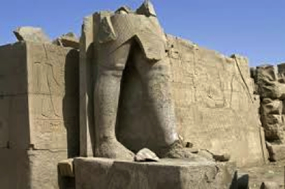What does ‘Ozymandias’ mean to you?
You may know it as the title of the 60th episode of the great TV series ‘Breaking Bad’, called by many one of the greatest TV drama episodes ever made. It had action, drama, pathos, emotion, the tangled webs of each character came together in a defining moment.
But I was thinking about the poem by Shelley, the nineteenth Century Romantic poet who died at the young age of 30 in 1822. The poem is one of his best known, and as I quoted a Sufi poet last week, I thought I would push my luck and put in another poem this week to balance east and West. I do not want to turn this letter into a fortnightly poetry class, but good poems are like extended graphic verbal metaphors, they paint a complex picture, more nuanced than the usual comparative metaphor and they are also more beautiful to the ear than normal metaphors. So below is Shelley’s poem, please read it through to yourself auditorily, then we will see its relevance for coaching.
I met a traveller from an antique land
Who said: “Two vast and trunkless legs of stone
Stand in the desert. Near them on the sand,
Half sunk, a shattered visage lies, whose frown
And wrinkled lip and sneer of cold command
Tell that its sculptor well those passions read
Which yet survive, stamped on these lifeless things,
The hand that mocked them and the heart that fed.
And on the pedestal these words appear:
`My name is Ozymandias, King of Kings:
Look on my works, ye mighty, and despair!’
Nothing beside remains. Round the decay
Of that colossal wreck, boundless and bare,
The lone and level sands stretch far away.
Percy Bysse Shelley
The poem says many things, in a complex and aesthetic way. One is that the marvellous deeds we do, the thoughts we have the achievements we build – they pass. Yes, they are wonderful and important and significant at the time, and still the world changes. Ozymandias had tremendous power at the time, and hundreds of years later, only empty ruins are left. Shelley makes the point that ‘with wrinkled lip and sneer of cold command’ Ozymandias was probably not a nice man and not one to disobey with impunity. The contrast of ‘look on my works ye mighty and despair’ and the ‘lone and level sands stretch far away’ says so much about the hubris of rulers that seek to put themselves above time and nature.
The poem is extreme, if we take a more gentle lesson, it would be to get a sense of proportion about our thoughts and actions. Never mind a thousand years, sometimes the next day, we are at a loss to understand how something that seemed such a life and death affair yesterday can look so ordinary today. How do we manage to lose proportion so easily?
Passion and value and energy and motivation are great and allow us to accomplish great things. We need them. They help us achieve what we want to achieve at the time.
But sometimes we think that just because we are passionate about something that it is objectively and timelessly important and what’s more, everyone else will also find it important and if they don’t then they had better think again, or there will be trouble. Even worse if we enforce this on those nearest us with ‘wrinkled lip and sneer of cold command’. Secondly it is possible to be passionate about our actions and achievements but not be attached to the outcome.
Here is an excellent coaching question we can ask ourselves about everything we do
‘Is this thing worth doing, and will I enjoy doing it, even if the goal I am trying to accomplish does not happen?’ This questions focuses more on the intrinsic worth of what we do, and the values behind it. So many goals present themselves to us in the course of a day, (and a lifetime), that we need a reliable way of choosing which ones we pursue, which ones we put our passion and energy and time into. It is infuriating if we spend days, weeks or even years trying to accomplish something, not particularly enjoying it , and at the end when we achieve it, there is a sense of let down. It does not deliver the feeling or the value we thought it would. We think to ourselves, ‘Is this as good as it gets?’ Sometimes we are so busy pursuing happiness that we do not notice we do not have it.
I don’t know why Breaking Bad took the name for that episode, but maybe because it dealt with the same kind of theme, a man who builds a huge empire but on the way, he loses many of those things that made him human, until all that were left was a rigid statue in the new Mexico desert.



